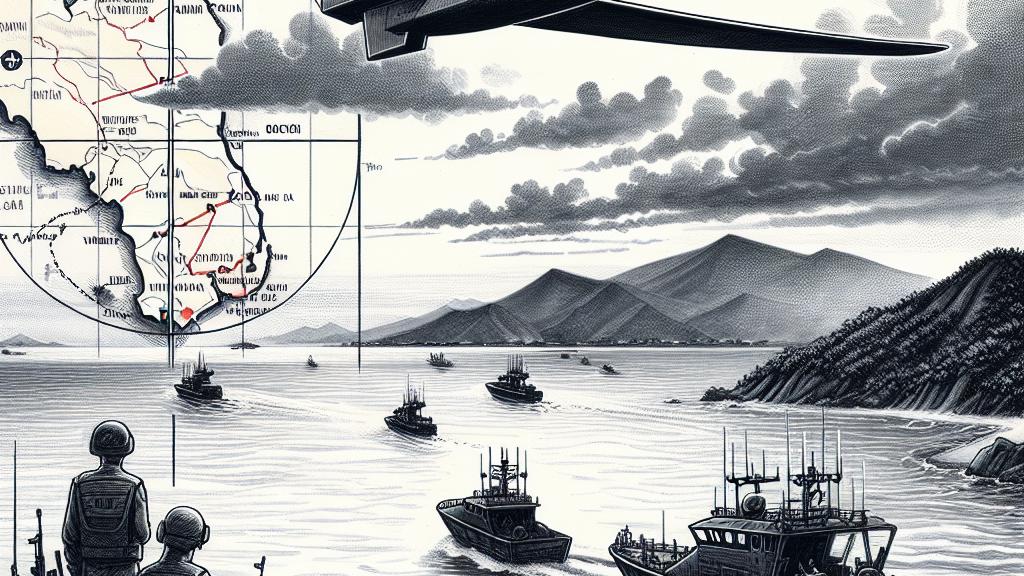China's Stealthy Flight: A New Chapter in South China Sea Tensions!
Overview
- Uncrewed Chinese military aircraft tracked near Vietnam's coast for the first time.
- Vietnam and Philippines strengthen maritime cooperation amidst rising tensions.
- Sovereignty disputes in the South China Sea emphasize the need for regional collaboration.

Significant Military Activity Unveiled
In a groundbreaking event last week, a Chinese uncrewed military aircraft was tracked flying alarmingly close to Vietnam's coastal waters, a first for monitoring agencies looking at the South China Sea. The WZ-10 aircraft was observed traveling approximately 100 kilometers from Vietnam, departing from Hainan Island and returning after its flight. This unprecedented visibility of Chinese military maneuvers raises serious concerns regarding regional security and sovereignty, especially in light of Vietnam's recent assertion of its territorial claims, including a submission to the United Nations to extend its continental shelf. The incident comes just before Vietnam's first joint coast guard exercises with the Philippines, emphasizing the delicate geopolitical balancing act both nations face amid increasing pressure from China.
Strengthening Alliances: Vietnam and the Philippines Unite
Amidst growing apprehensions regarding Chinese activities in the region, Vietnam has taken definitive steps to bolster its maritime security by forging strong ties with the Philippines. Recently, both nations signed crucial agreements aimed at enhancing cooperation between their coast guards to better respond to potential maritime incidents. This collaboration is vital, especially given the heightened tensions surrounding the South China Sea, which both countries claim parts of. By working together and sharing intelligence, Vietnam and the Philippines not only fortify their own security but also send a powerful signal to China regarding the unity of Southeast Asian nations in protecting their maritime rights. The agreements set the groundwork for training programs, communication enhancements, and rapid response strategies that are expected to deter future aggressive actions in contested waters.
Navigating Geopolitical Tensions in the South China Sea
The South China Sea continues to be a flashpoint of geopolitical tensions involving China, Vietnam, and the Philippines, with significant implications for international maritime law and regional stability. China's expansive claims, articulated through the controversial nine-dash line, have been rejected by the international community, yet Beijing persists in its assertive military posture. As nations like Vietnam and the Philippines navigate their sovereignty challenges against the backdrop of rising Chinese interference, the intertwining of domestic politics and foreign policy becomes increasingly important. Vietnam, now experiencing political transitions, faces the challenge of maintaining strong defenses while pursuing diplomatic resolutions that prevent conflict escalation. Ultimately, the South China Sea represents a critical arena where collaboration among regional partners is essential to safeguard national interests and promote lasting peace.

Loading...